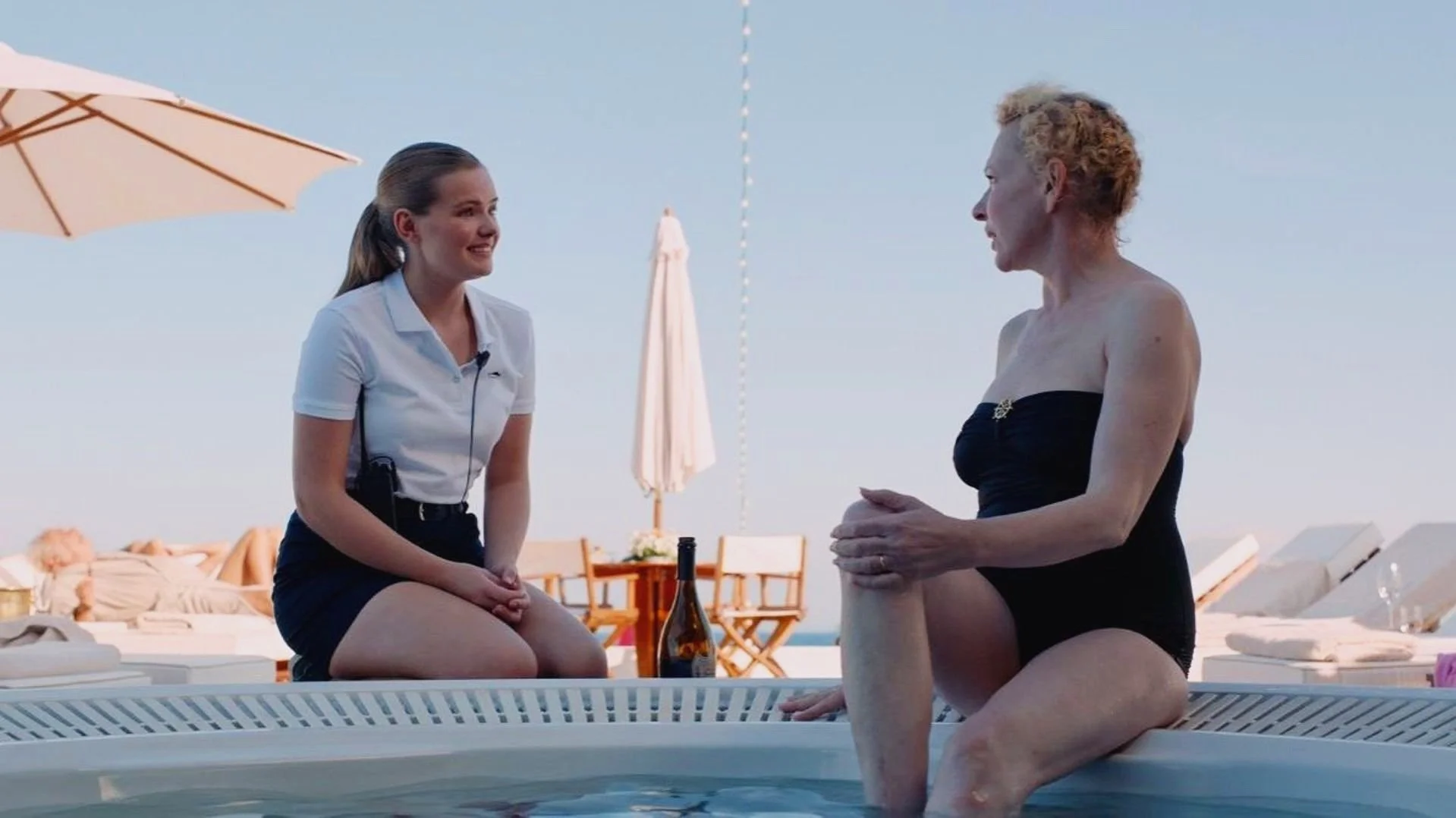Review: the blissful spiral of Triangle of Sadness
Of the three internationally-acclaimed satires that he’s directed thus far, I’d say that Ruben Östlund’s Triangle of Sadness is his darkest outing yet.
Part of this is because its focus is far broader than that of the other two films: it goes beyond the marital discord of Force Majeure (2014) and the art world take-down that is The Square (‘17).
Instead, it gradually ups its own ante — evolving from mockery of the modeling and fashion industries, to an exposé of gender and socioeconomic politics in one couple’s relationship… to a contained panorama of wealth inequality aboard a luxury yacht cruise... to a Lord of the Flies-esque assessment of what happens when you strand a group of people from different classes, yet with different abilities, on a remote island.
Running through it all is Östlund’s piercing insight into not only the arbitrary, transmutable nature of power dynamics, but the ease and readiness with which people either defer to or realign themselves within a given or shifting status quo.
In that way, I think Triangle of Sadness is much more successful as a parable on globalized, capitalist society than, say, Bong Joon-ho’s Parasite (‘19), which also allegories these bigger themes via a small circle of people, yet doesn’t trust theme to emerge organically through character, and instead imposes theme at the expense of character — not to mention plausibility.
Granted, this film can feel over-the-top as well. For instance, the Captain’s (Woody Harrelson) reciting of Marxist doctrine over the yacht’s intercom while waves batter its sides and toilets overflow is what I consider hitting the nail a bit too neatly on the head. (It also seems unlikely that this vessel full of billionaires wouldn’t immediately erupt in protest. I don’t care how seasick they all are.)
But there are also so many deliciously dismal set pieces, like a Russian oligarch’s wife (Sunnyi Melles) coercing an unwilling crew member to take a break from her duties and swim in the pool, or when a British arms manufacturer and his wife meet a most ironic end during a pirate attack. And then there’s Dolly de Leion’s third-act coup d’état as a cleaner-turned-beachside autocrat — lending this film its ultimate, crushingly tragic dimension. Östlund’s great strength is that he’s keenly in tune with his characters’ motivations and blind spots; except for one or two occasions, no one in this movie acts or says anything that’s inconsistent with who they are and what they know.
And in the end, cynical though it all may be, Triangle of Sadness doesn’t ask us to glumly settle into class resentment. Rather, it urgently invites us to acknowledge how, so long as humanity continues to live by codes of material advantage, we fail to show up for one another.
